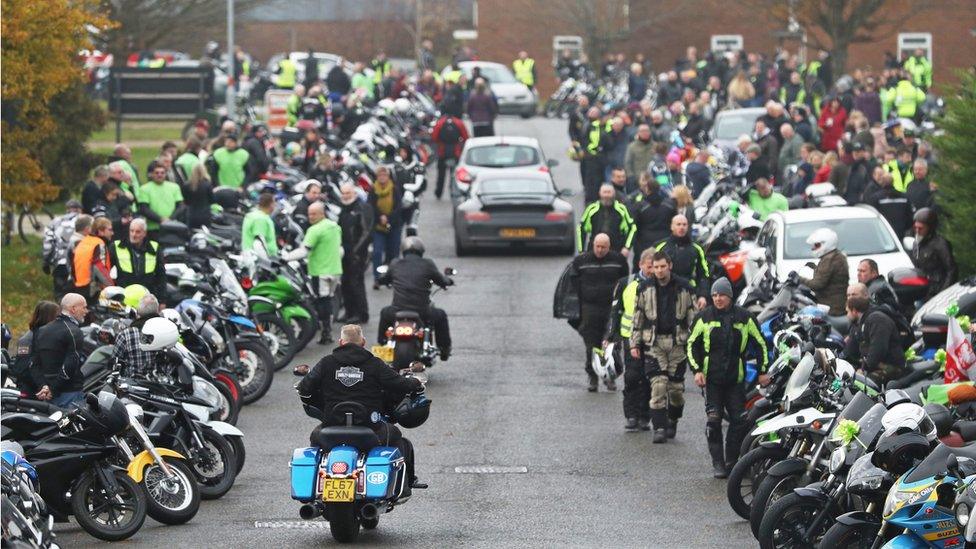Harry Dunn crash death: US woman to be charged
- Published
"A huge step": Harry's mother reacts to the charge
A US woman will be charged with causing the death of teenage motorcyclist Harry Dunn by dangerous driving.
Mr Dunn, 19, died in a road crash in Northamptonshire in August that led to suspect Anne Sacoolas leaving for the US under diplomatic immunity.
The Crown Prosecution Service (CPS) said it had started extradition proceedings through the Home Office.
US officials said it was not "a helpful development" and Mrs Sacoolas' lawyer said she would not return to the UK.
Lawyer Amy Jefress said: "Anne will not return voluntarily to the UK to face a potential jail sentence for what was a terrible but unintentional accident."
Mr Dunn's mother Charlotte Charles said the family was "relieved" Mrs Sacoolas had "finally" been charged.
Outside the CPS headquarters she said: "We feel that we have made a huge step in the start of achieving the promise to Harry that we made.
"We made that promise to him the night we lost him to seek justice thinking it was going to be really easy.
"We had no idea it was going to be so hard and it would take so long."
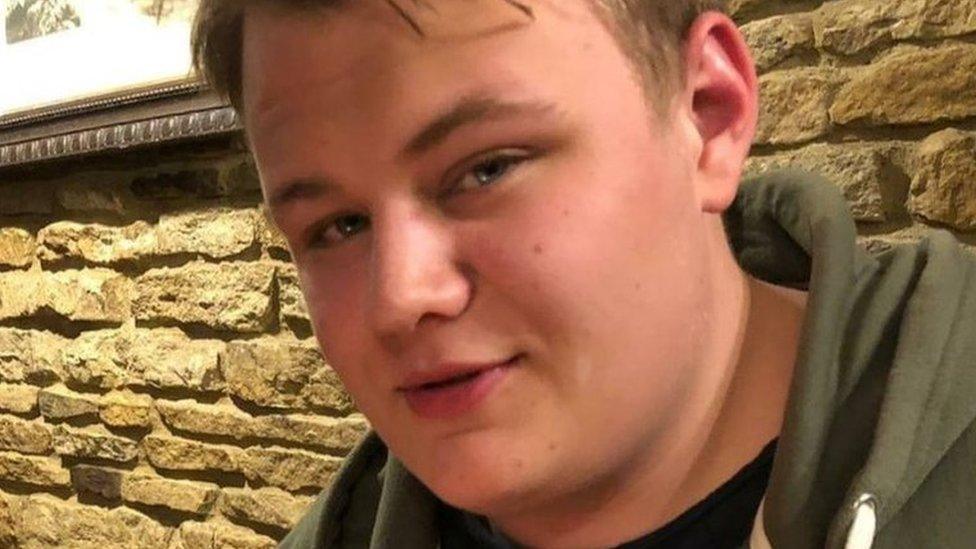
Harry Dunn died in hospital after his motorbike was involved in a crash outside RAF Croughton
Mr Dunn died after his motorbike was in collision with a car owned by Mrs Sacoolas outside RAF Croughton where her husband Jonathan worked as an intelligence officer.
Mrs Sacoolas, 42, left the UK and returned to her native US, claiming diplomatic immunity.
A statement from the US State Department said that at the time of the crash Mrs Saccolas had "status that conferred diplomatic immunities" and added the foreign secretary "stated the same in Parliament".
It added: "It is the position of the United States government that a request to extradite an individual under these circumstances would be an egregious abuse.
"The use of an extradition treaty to attempt to return the spouse of a former diplomat by force would establish an extraordinarily troubling precedent.
"We do not believe that the UK's charging decision is a helpful development."
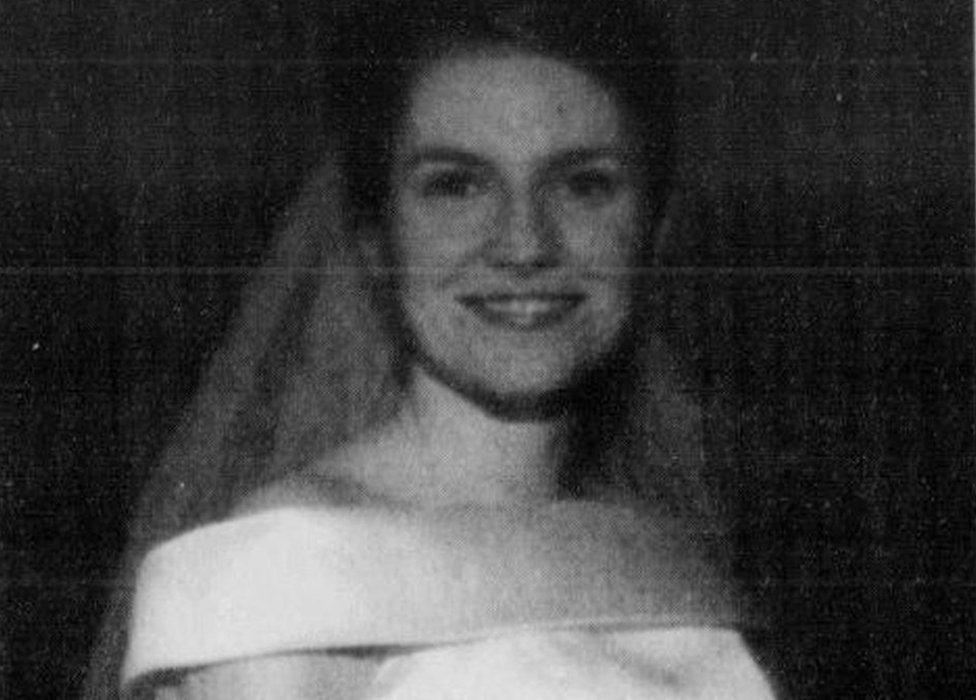
Anne Sacoolas pictured on her wedding day in 2003
A statement via her lawyer said Mrs Sacoolas had "co-operated fully with the investigation and accepted responsibility".
It added: "This was an accident, and a criminal prosecution with a potential penalty of 14 years' imprisonment is simply not a proportionate response.
"We have been in contact with the UK authorities about ways in which Anne could assist with preventing accidents like this from happening in the future, as well as her desire to honour Harry's memory.
"We will continue that dialogue in an effort to move forward from this terrible tragedy."

Analysis
BBC correspondent Duncan Kennedy
This has been a tortuous, raw, unrelenting, four months for Harry Dunn's family.
They cannot bear to be at the centre of what they regard as an prolonged, unnecessary, international spat between lawyers, diplomats and politicians over what, to them, was a tragic family road accident.
Meeting presidents, foreign secretaries and chief constables has been an alien, disorientating experience for them.
They sometimes feel that Harry has been forgotten amid all their efforts to keep his case prominent in the minds of those who carry influence.
They know that the Home Office will now start the extradition process. They realise that although extradition may take some time, their efforts on behalf of their son now have some meaning.

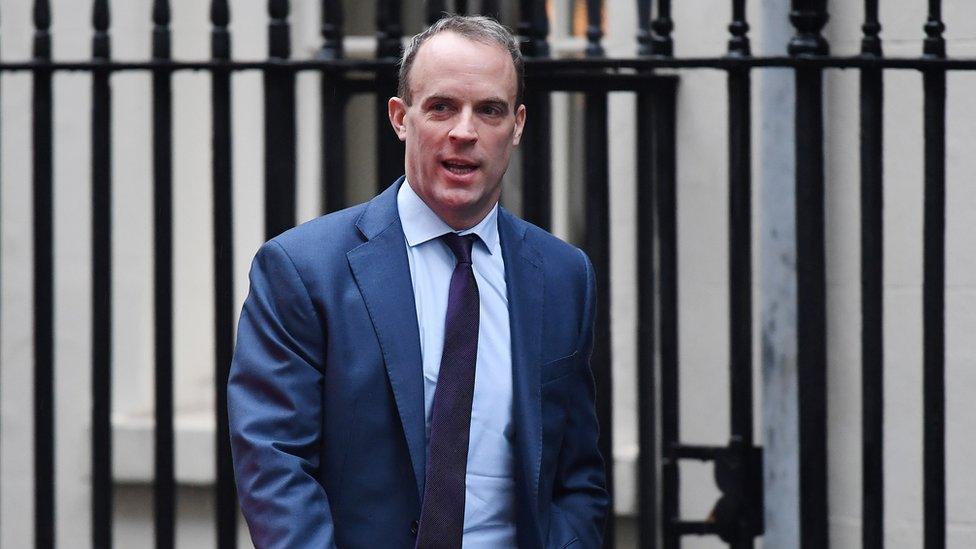
Foreign Secretary Dominic Raab previously urged Mrs Sacoolas to return to the UK voluntarily
Foreign Secretary Dominic Raab said a review into the immunity arrangements at Croughton for US personnel and their families had concluded.
It found that it was an "anomaly" that family members had "greater protection from UK criminal jurisdiction than the officers themselves".
He said he welcomed the decision to charge Mrs Sacoolas.
Mr Raab added: "I hope that Anne Sacoolas will now realise the right thing to do is to come back to the UK and cooperate with the criminal justice process."
Chief Crown Prosecutor Janine Smith said it had authorised Northamptonshire Police to charge Mrs Sacoolas.
She said the director of public prosecutions had met Mr Dunn's family to explain the decision.

Can Anne Sacoolas be extradited?
The extradition request is sent via the British Embassy to the US State Department.
A lawyer will then decide whether it falls under the dual-criminality treaty, where the alleged offence is a crime in both countries and carries a prison sentence of at least a year.
The maximum sentence for causing death by dangerous driving is 14 years' imprisonment, although this is usually reserved for the most serious cases.
The US may reject the request for extradition, arguing that Mrs Sacoolas is still entitled to diplomatic immunity.

Mr Dunn's parents Tim Dunn and Mrs Charles had previously been critical of the lack of communication from the CPS.
His father said on Friday he was "overwhelmed" by the CPS's decision.
Mr Dunn's parents rejected a "bombshell" offer from Donald Trump to meet Mrs Sacoolas at the White House in October.
- Published20 December 2019
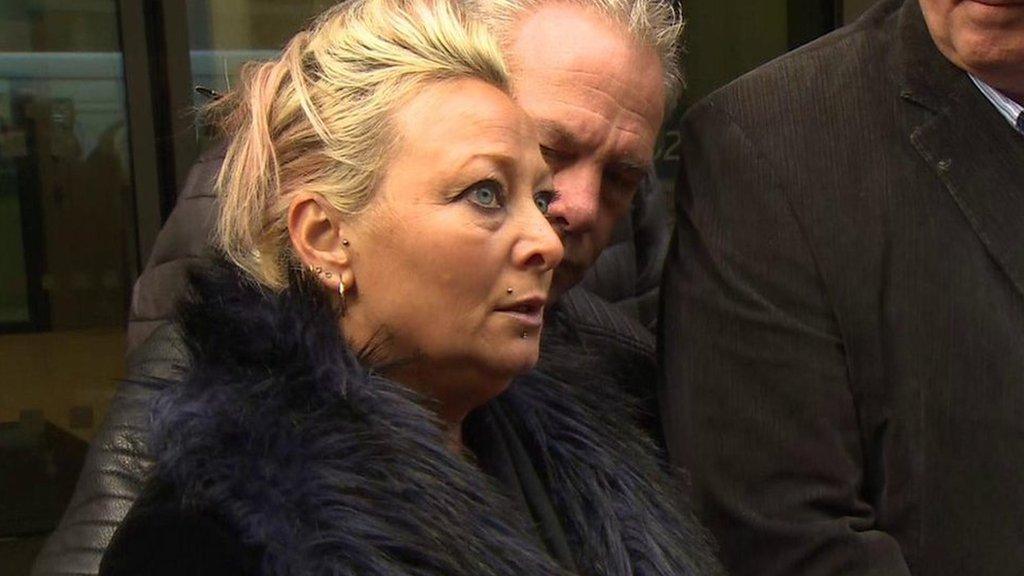
- Published10 April 2012
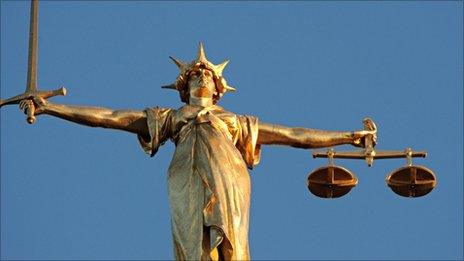
- Published17 December 2019
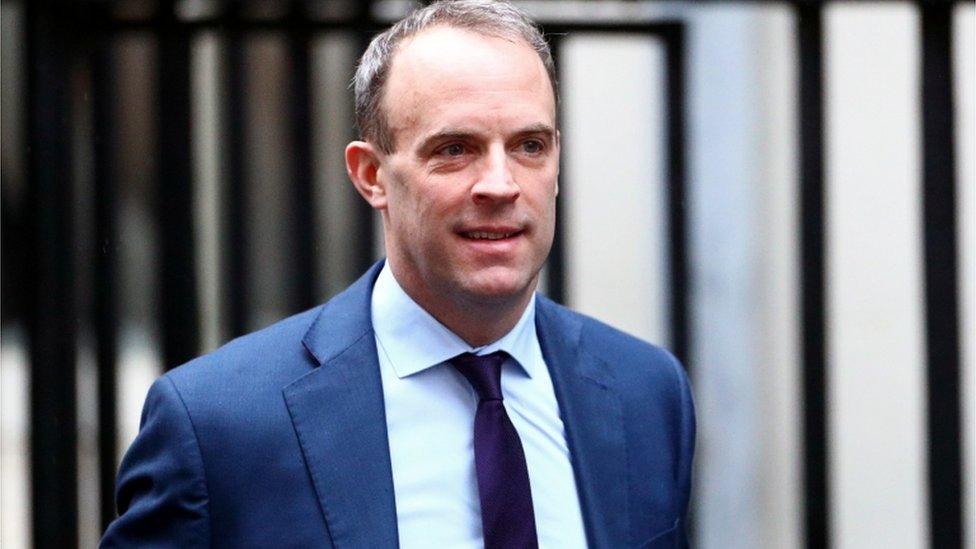
- Published17 November 2019
